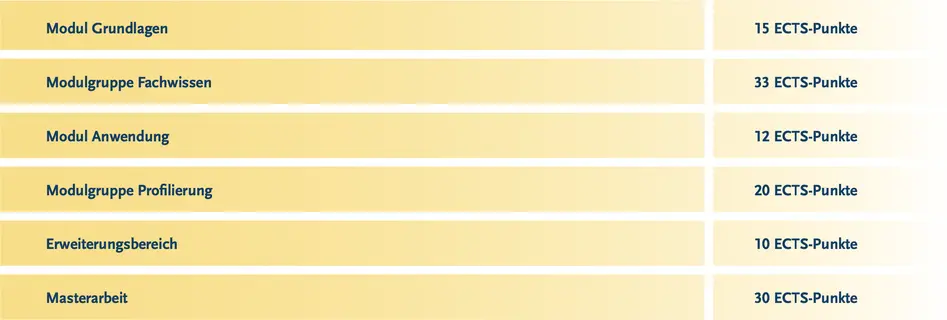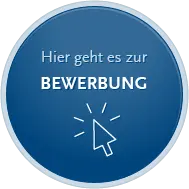Structure and Curriculum
4 semesters of study, 120 ECTS points
This degree programme’s modules build on each other. They teach important fundamental knowledge and pertinent specialist knowledge. The ‘Application’ module is a unique feature of this programme: these practice-oriented block courses take place in the summer semester and introduce students to various activities in heritage conservation first hand. They are often conducted under the guidance of external specialists and provide important insights into the main professional fields within heritage conservation.
In-depth courses allow students to establish specialisations and define their own profile in the history and theory of heritage conservation, in building history and building research, in building restoration and renovation technologies, in restoration studies and in archaeology. In addition, elective modules can be completed to expand subject-specific skills in fields such as digital technologies in heritage conservation, archaeology, art history, historical geography, Islamic art and archaeology, or applied computer science.
The final semester is reserved for writing the master’s thesis, with students receiving individual support and consultation in a special seminar for all students in this phase of the programme. The list of final theses(1.5 MB) provides an overview of the topical focus areas of our graduates from 1983 to 2017.

In the Foundation module, the fundamentals of the subjects Heritage Conservation Studies, Building Archaeology and Materials and Preservation Sciences are taught via lectures of two credit hours per week each. The subject of Archaeological Preservation also includes a class comprising one credit hour per week. Module contents are discussed and developed in the accompanying seminars. Students complete the module with a consolidated examination on all subjects.
Module components:
- Lecture: Fundamentals of Heritage Conservation (2 credit hours per week)
- Lecture: Building Archaeology and Building Restoration (2 credit hours per week)
- Lecture: Fundamentals of Materials and Preservation Science (2 credit hours per week)
- Lecture/seminar: Fundamentals of Archaeological Heritage Conservation (1 credit hour per week)
- 3 accompanying seminars (1 credit hour per week each)
The specialist knowledge module group presents in-depth specialist knowledge and should be completed in the second semester. The specialist lectures and seminars cover the fields of heritage conservation (10 ECTS points), building archaeology (12 ECTS points) and materials and preservation science (6 ECTS points). The Law, Management, Institutions module (5 ECTS points) rounds out the group.
Components of the module group:
- Specialist knowledge module – Heritage Conservation:
- Lecture on heritage conservation (2 credit hours per week/2 ECTS)
- 2 seminars on heritage conservation (each 2 credit hours per week/4 ECTS each)
- Specialist knowledge module – Building Archaeology and Building Restoration:
- Lecture on building archaeology/building restoration (2 credit hours per week/2 ECTS)
- Seminar on building archaeology/building restoration (4 credit hours per week/4 ECTS)
- Additional seminars on building archaeology/building restoration (at least 4 credit hours per week in total/6 ECTS in total)
- Specialist knowledge module – Materials and Preservation Science:
- Lecture on materials and preservation science (2 credit hours per week/2 ECTS)
- Seminar on materials and preservation science (2 credit hours per week/4 ECTS)
- Specialist knowledge module – Law, Management, Institutions:
- 3 seminars from the fields of heritage law, management and institutions (5 credit hours per week in total/5 ECTS)
The Application module is confined to the second half of the summer semester. The individual seminars are divided into weekly blocks and based around projects. They take place outside the university, around or in the monument or the cultural site. Here students can apply the knowledge and skills gained in the ‘Foundation’ and ‘Specialist knowledge’ modules and transfer these to new fields of application. A major aim of this module is to enable students to better assess their particular interests, skills and abilities and make purposeful choices among the very wide range of subjects offered in the ‘Focus’ module in the third semester of study.
Module components:
- At least six block seminars (3 credit hours per week each/2 ECTS each); at least one each from of the fields of heritage conservation, building archaeology and materials and preservation science
The Specialisation module group (20 ECTS) builds on the knowledge gained in the ‘Foundation’ and ‘Application’ modules and the ‘Specialist knowledge’ module group. It should be completed in the third semester. The specialisation modules provide a targeted introduction to the individual subjects’ research questions and therefore prepare students for selecting the topic of their master’s thesis.
Specialisation modules (10 ECTS each) in the subjects Heritage Conservation, Building Archaeology (1 and 2), Materials and Preservation Science, Building Restoration/Renovation Technologies (1 and 2) and Archaeology (1 and 2) may be selected. All modules can be combined freely. This means that a strong focus on just one subject is possible, as well as the option to combine modules from different subjects according to students’ interests.
For students who are interested in interdisciplinary studies, it is possible to only complete one focus module worth 10 ECTS and make up the missing 10 ECTS by selecting a module from the elective component.
Components of the module group:
- Specialisation module – Heritage Conservation
- 2 seminars (each 2 credit hours per week/5 ECTS)
- Specialisation module – Building Archaeology 1:
- 2 seminars (each 2 credit hours per week/5 ECTS)
- Specialisation module – Building Archaeology 2:
- 2 seminars (each 2 credit hours per week/5 ECTS)
- Specialisation module – Materials and Preservation Science:
- 2 seminars (each 2 credit hours per week/5 ECTS)
- Specialisation module – Building Restoration/Renovation Technologies 1:
- 2 seminars (each 2 credit hours per week/5 ECTS)
- Specialisation module – Building Restoration/Renovation Technologies 2:
- 2 seminars (each 2 credit hours per week/5 ECTS)
- Specialisation module – Archaeology 1:
- 1 lecture/intermediate seminar/seminar (2 credit hours per week)
- 2 intermediate seminars/practical training courses/tutorials/colloquia (4 credit hours per week in total)
- Specialisation module – Archaeology 2:
- 1 lecture series/intermediate seminar/seminar (2 credit hours per week)
- 2 intermediate seminars/practical training courses/tutorials/colloquia (4 credit hours per week in total)
- Modules from the elective component for the Heritage Conservation programme:
- Modules comprising at least 10 ECTS points included in the module handbooks of the following subjects: Art History, Islamic Art and Archaeology, Historical Geography, Applied Computer Science
The distribution elective component can be completed by attending courses in the first through third semesters of study. Students can select among all subjects at the University of Bamberg and at the Coburg University of Applied Sciences and Arts that are listed in the module handbook and thusly classified, as well as the Heritage Conservation elective module or a module that has not been selected in the Specialisation module group. It is possible to slightly exceed the minimum credit amount of 10 ECTS.
Components of the distribution elective section:
- Modules comprising at least 10 ECTS points from the module handbooks of the following subjects at the University of Bamberg: Heritage Studies, Building Archaeology/Building History, Materials and Preservation Science, Building Restoration/Renovation Technologies, Digital Technologies in Heritage Conservation, Archaeology, Sociology, Political Science, Geography, Psychology, History, European Ethnology, Oriental Studies
OR
- Modules comprising at least 10 ECTS points from the module handbooks of the following subjects at the Coburg University of Applied Sciences and Arts: Architecture, General Civil Engineering, Energy Efficient Building Design
OR
- Distribution module in Heritage Conservation:
- 2 seminars (each 2 credit hours per week/5 ECTS)
OR
- A module from the Specialisation module group that hasn’t otherwise been selected (10 ECTS)
As a general rule, the programme is completed in the fourth semester of study with the master’s thesis (30 ECTS). Students should contact professors and staff at the University of Bamberg and the Coburg University of Applied Sciences and Arts who are authorised to supervise students with regard to allocating topics for master’s theses.
Module components:
- Thesis seminar (30 ECTS)
